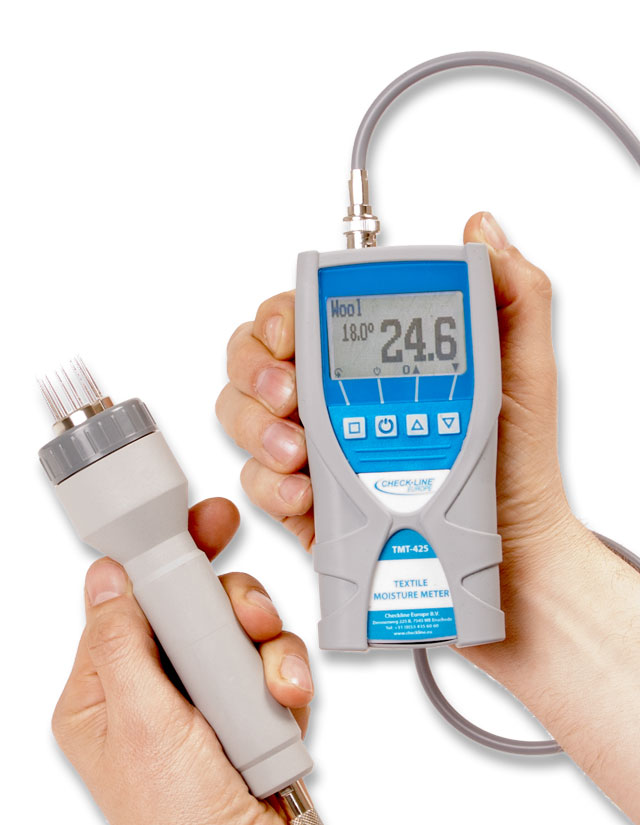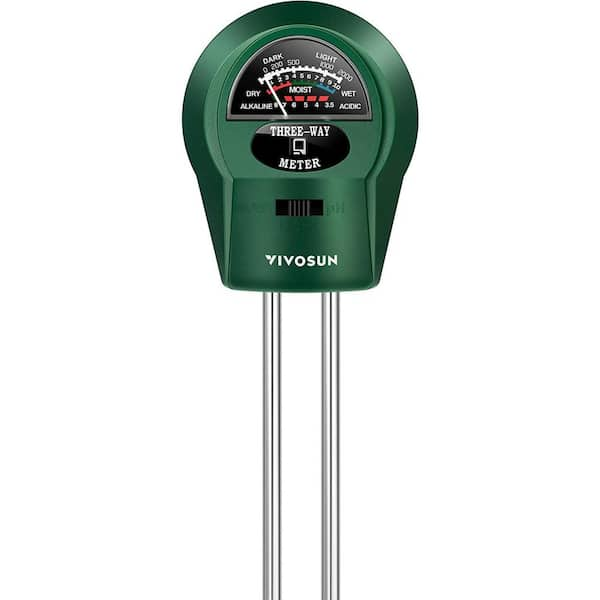How a Moisture Meter Can Improve Your Building And Construction Tasks and Protect Against Damages
How a Moisture Meter Can Improve Your Building And Construction Tasks and Protect Against Damages
Blog Article
Look Into the World of Moisture Meters: Every Little Thing You Need to Know
In the world of moisture meters exists a globe of accuracy and practicality that often goes unnoticed. These tools, while relatively uncomplicated, hold a wealth of details that can substantially influence various sectors and applications. Comprehending exactly how moisture meters operate, the various types readily available, and their diverse uses can lose light on their value in ensuring quality and performance. By discovering the complexities of wetness meters, one can discover a beneficial device that transcends plain measurement, supplying understandings that can make a considerable difference in various areas.
Just How Moisture Meters Work
Moisture meters operate by determining the electrical conductivity or capacitance of products to identify the moisture content existing. These meters are invaluable devices throughout numerous markets, including building and construction, woodworking, and agriculture. By making use of different techniques such as pinless or pin-type technology, dampness meters supply precise analyses that assist professionals make notified decisions.
Pin-type wetness meters work by placing the sharp pins into the material being checked. The electrical conductivity between the pins is after that gauged, with higher dampness levels bring about boosted conductivity. Moisture Meter. On the other hand, pinless wetness meters utilize electro-magnetic signals to check a larger location without causing any kind of damage to the product's surface. These meters are suitable for rapidly analyzing dampness levels in huge locations or ended up products.
No matter of the approach made use of, wetness meters play a crucial role in stopping issues such as mold development, architectural damage, or product problems triggered by excess wetness. Comprehending just how these meters work is essential for guaranteeing the high quality and honesty of products in numerous applications.
Sorts Of Moisture Meters
Given the essential function dampness meters play in different markets, it is vital to comprehend the various kinds available to experts for properly evaluating moisture levels - Moisture Meter. There are mainly 2 primary sorts of moisture meters: pin-type and pinless dampness meters

On the other hand, pinless moisture meters use electromagnetic sensing unit plates to scan a larger location of the material without triggering any damages. This type appropriates for quickly scanning large locations and is typically made use of for flooring, walls, and ceilings. Pinless meters are hassle-free for taking readings on completed surfaces without leaving any visible marks.
Both sorts of dampness meters have their benefits and are picked based upon the details needs of the task handy. Recognizing the distinctions between these types is critical for experts to make exact moisture assessments.
Applications Throughout Industries
With diverse performances, wetness meters locate extensive application throughout numerous markets, assisting experts in ensuring optimal problems for materials and structures. In the farming industry, wetness meters are important for determining the wetness content in grains, seeds, and hay, guaranteeing quality control and stopping mold and mildew development. Construction professionals rely upon dampness meters to analyze the moisture degrees in structure materials like drywall, wood, and concrete, which is important for preserving structural honesty and protecting against concerns like rot or mold. The flooring market utilizes dampness meters to measure the moisture material in subfloors before setting up different flooring, avoiding pricey problems due to excess wetness. Additionally, in the food market, moisture meters are made use of to check and manage moisture levels in products such as grains, nuts, and dried fruits to preserve quality and quality. In addition, moisture meters play an important role in the restoration and damage control industry by aiding professionals determine and deal with water damage in structures immediately. Across these diverse markets, dampness meters are vital devices for making sure the quality, safety, and long life of numerous materials and items.
Tips for Utilizing Moisture Meters
Make use of the moisture meter's calibration settings to ensure exact readings when measuring the moisture content in numerous materials. Furthermore, make sure the meter is established to the appropriate dampness array for the material you are gauging to get the most exact results.
When utilizing a pin-type moisture meter, insert the pins to the proper depth suggested for the product being evaluated. This guarantees that the moisture analyses are extracted from the right deepness within the product, giving Read More Here an extra exact representation of its moisture content. For pinless moisture meters, keep in mind to preserve appropriate contact with the material's surface to get reputable readings.
Consistently inspect and change the batteries in your moisture meter to avoid inaccurate readings due to reduced power. When not in use to prolong its life-span and maintain its precision, Shop the meter in a secure and dry area. By complying with these tips, you can optimize the performance of your dampness meter and get accurate moisture material learn this here now dimensions throughout various products.
Maintenance and Calibration
To make certain the precision of wetness material measurements, normal maintenance and calibration of the wetness meter are necessary action in its appropriate performance. Maintenance includes keeping the moisture meter tidy and totally free from debris that can impact its readings. It is vital to follow the supplier's standards for cleaning up to stop damages to the tool. Additionally, regular calibration is essential to confirm the accuracy of the readings. Calibration changes the dampness meter to ensure that it provides consistent and reputable results.
Calibration must be carried out occasionally, especially if the dampness meter is used often or in vital applications where precise dimensions are needed. Several dampness meters include calibration devices or can be adjusted by professional services. Moisture Meter. It is advised to keep a log of calibration dates and results to track the efficiency of the moisture meter over time. By preserving and calibrating the moisture meter on a regular basis, individuals can trust the accuracy of the dampness material dimensions gotten.
Final Thought

Finally, wetness meters play an essential duty in various markets by accurately determining the dampness material of materials. Recognizing exactly how these devices work, the various types offered, and proper article maintenance and calibration are crucial for obtaining reliable outcomes. Whether in construction, agriculture, or manufacturing, the usage of dampness meters helps make certain high quality control and performance in procedures.

In final thought, dampness meters play an essential role in various markets by accurately measuring the dampness web content of materials.
Report this page